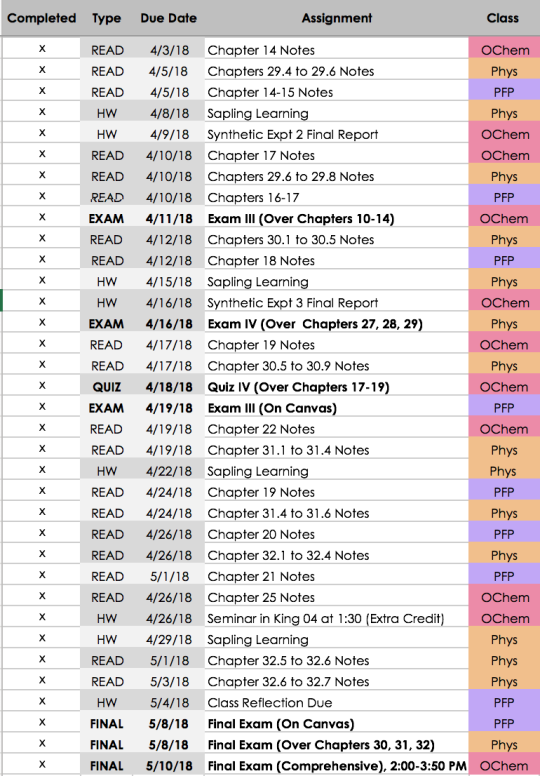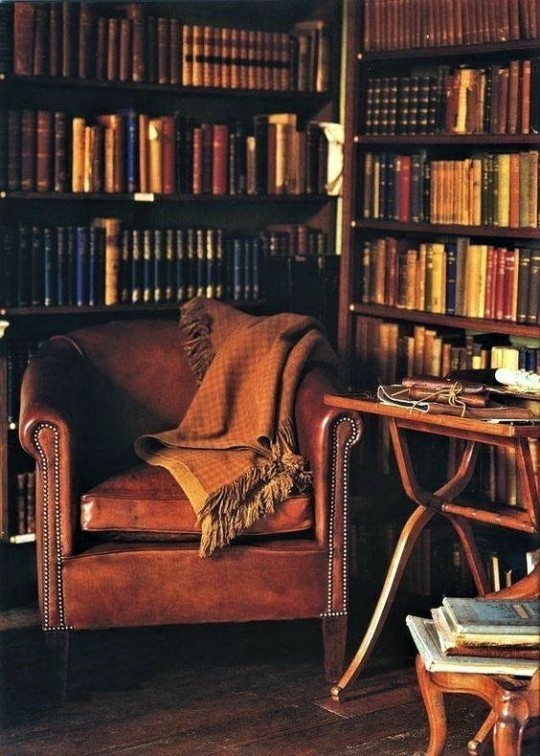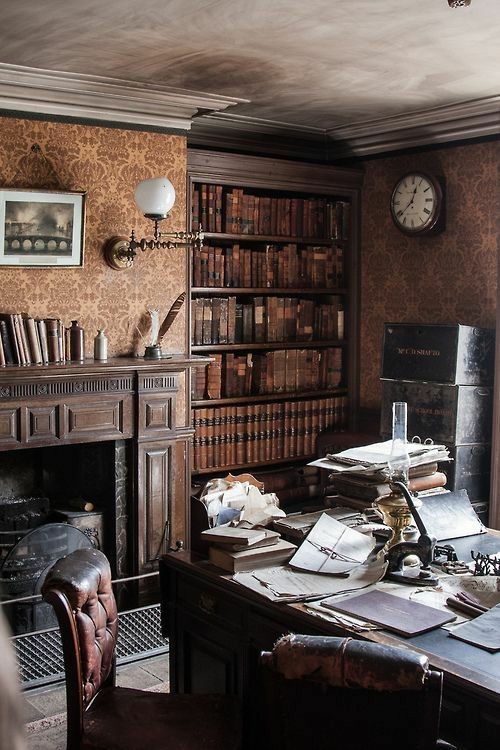Note
Do you have any tips for getting into grad school?
honestly, not really. but i’ve had my fair share of rejection and when I finally received an acceptance letter, i realised that to get into grad school, it takes:
perseverance (never give up)
self-efficacy (believe you can do it)
tons of faith (know for sure that you’re capable enough to succeed).
xx
9 notes
·
View notes
Text
Read this:
“I want to tell a story about an invisible elephant.
Once upon a time, when I was in graduate school at UCSB, the department of religious studies held a symposium on diasporic religious communities in the United States. Our working definition for religious diaspora that day was, “religious groups from elsewhere now residing as large, cohesive communities in the US.” It was a round table symposium, so any current scholar at the UC who wanted to speak could have a seat at the table. A hunch based on hundreds of years of solid evidence compelled me to show up, in my Badass Academic Indigenous Warrior Auntie finery.
There were around 15-20 scholars at the table, and the audience was maybe fifty people. There was one Black scholar at the table, and two Latinx scholars, one of whom was one of my dissertation advisors. The other was a visiting scholar from Florida, who spoke about the diasporic Santería community in Miami. But everyone else at the table were white scholars, all progressively liberal in their politics, many of whom were my friends. Since there was no pre-written agenda, I listened until everyone else had presented. I learned a tremendous amount about the Jewish diaspora in the US, and about the Yoruba/Orisha/Voudou, Tibetan Buddhist, Muslim, and Hindu communities, and even about a small enclave of Zoroastrians.
As they went on, I realized my hunch had been correct, and I listened to them ignore the elephant, invisible and silent, at that table.
So I decided to help her speak the hell up. “Hello, my name is Julie Cordero. I’m working on my PhD in Ethnobotany, Native American Religious Traditions, and history of global medical traditions. I’d like to talk about the European Catholic and Protestant Christian religious diaspora in the United States, as these are the traditions that have had by far the greatest impact on both the converted and non-converted indigenous inhabitants of this land.”
Total silence. And then several “hot damns” from students and colleagues in the audience. I looked around the table at all the confused white faces. My Latinx advisor slapped his hand on the table and said, “Right!!?? Let’s talk about that, colleagues.”
The Black scholar, who was sitting next to me, started softly laughing. As I went on, detailing the myriad denominations of this European Christian Diaspora, including the Catholic diocese in which I’d been raised and educated, and the brutal and genocidal Catholic and Protestant boarding schools that had horribly traumatized generations of First Nations children, and especially as I touched on how Christians had twisted the message of Christ to try and force people stolen from Africa to accept that their biblically-ordained role was to serve the White Race, her laughs grew more and more bitter.
The Religious Studies department chair, who’d given a brilliant talk on the interplay between Jewish and Muslim communities in Michigan, stopped me at one point, and said, “Julie, I see the point you are so eloquently making, but you’re discussing American religions, not religious diasporic communities.” I referred to the definition of diaspora we had discussed at the start of the discussion, and then said, “No, Clark. If I were here to discuss religions that were not from elsewhere, I’d be discussing the Choctaw Green Corn ceremony, the Karuk Brush Dance, the Big Head ceremonial complex in Northern California, the Lakota Sun Dance, or the Chumash and Tongva Chingichnich ritual complex.”
It got a bit heated for a few moments, as several scholars-without-a-damn-clue tried to argue that we were here to discuss CURRENT religious traditions, not ancient.
Well. I’ll let you use your imagination as to the response from the POC present, which was vigorously backed by the three young First Nations students who were present in the audience (all of whom practice their CURRENT ceremonial traditions). It got the kind of ugly that only happens with people whose self-perception is that they, as liberal scholars of world cultures with lots of POC friends and colleagues, couldn’t possibly be racist.
Our Black colleague stood and left without a word. I very nearly did. But I stayed because of my Auntie role to the Native students in the audience.
I looked around at that circle of hostile faces, and waited for one single white scholar to see how unbelievably racist was this discursive erasure of entire peoples - including my people, on whose homeland UCSB is situated.
Finally, a friend spoke up. “If we are going to adhere to the definition of diaspora outlined here, she is technically correct.”
And then my dear friend, a white scholar of Buddhism: “In Buddhist tradition, the Second Form of Ignorance is the superimposition of that which is false over that which is true. In this case, all of us white scholars are assuming that every people but white Americans are ‘other,’ and that we have no culture, when the underlying fact is that our culture is so dominant that we’ve deluded ourselves into thinking it’s the neutral state of human culture against which all others are foreign. Even the Black people our ancestors abducted and enslaved we treat as somehow more foreign than ourselves. And, most absurdly, the peoples who are indigenous to this land are told that we belong here more than they do.”
People stared at their hands and doodled. The audience was dead quiet.
And you know what happened then? The elephant was no longer invisible, and my colleagues and I were able to have a conversation based on the truths about colonialism and diaspora. We were THEN able to name and discuss the distinctions between colonial settlements and immigrant settlements, and how colonial religious projects have sought to overtake, control, and own land, people, and resources, while immigrant and especially refugee diasporic communities simply seek a home free from persecution.
As we continue this national discussion, it is absolutely key to never, ever let that elephant be invisible or silent. You are on Native Land. Black descendants of human beings abducted from their African homelands are not immigrants. European cultures are just human cultures, among many. And the assignation of moral, cultural, racial superiority of European world views over all non-Euro human cultures is a profound delusion, one that continues to threaten and exterminate all people who oppose it, and even nature itself.
I hope that this story has comforted the afflicted and afflicted the comfortable.”
- Julie Cordero-Lamb, herbalist & ethnobotanist from the Coastal Band of the Chumash Nation
54K notes
·
View notes
Text
Imagine putting your footnotes at the back of the book (this post made by the footnotes at the bottom of the page gang)
12K notes
·
View notes
Text
some things I learned at field school (in no particular order):
-archaeologists will find Any and All excuses to use a machete*, especially when wildly unnecessary
-using a 5 gallon bucket as a step stool is A) not the way you’re supposed to get in and out of a 90cm hole and B) the easiest way to get in and out of a 90cm hole
-pool noodles can be an important tool
-the number of functioning brain cells shared by an excavation team is negatively correlated to the number of PhD’s held by the team members
-cod have ear bones (which are surprisingly large)
-the pythagorean theorem does in fact have real world applications
-no matter how interesting and plentiful the woodland period artifacts from your site are, all the public will care about are the four artifacts that may be related to Samuel de Champlain’s short visit to the site in 1607
-$40 worth of packing peanuts is somehow both way more and way less packing peanuts than you would expect
-the proper way to excavate is not, in fact, to dig but to (and I quote) “peel the dirt”
-three people with PhD’s will stop working on something extremely time sensitive to try and work out the difference between an imperial ton and a metric ton for several minutes. it will take an undergrad to think of googling the answer
-you can never have enough sharpies
*we were excavating a small piece of land between a beach and the woods on a university campus in coastal Maine and yet somehow two (2) machetes were involved (one for each prof)
#archaeology#anthropology#archaeological excavtion#archaeological dig#archaeology advice#archaeology dig#dig#excavation
2K notes
·
View notes
Photo

Hello everyone! I’ve had some questions about the assignment schedule I posted here.
The idea was born out of my desire to eliminate the “Oh shit is that due tomorrow?!?!” late night moments of panic. I knew I wanted to have one master list of all of the things I needed to get done. Something about having absolutely everything I need to do written down and in front of me makes a challenging semester seem less daunting and more doable.
The best part about this schedule is that you can tweak it until it works for you! I chose to use Excel because it was more flexible than writing it in my planner, and I could add/delete tasks as the semester went on (and as professors changed the due dates a million times).
During syllabus week, I go through each syllabus and list every task, reading, assignment or exam from the beginning of the semester all the way through finals week. By the end of the week, I have a comprehensive list of what I need to do for every single class, all in one place. I’m getting ready for the new semester and thought I’d walk everybody through how I organize mine:
Completed: mostly because I like to mark tasks off as I complete them, but also because it made it easier to quickly scan and find where I’m at in the list.
Type: I used this to discern between assignments and tests or quizzes, which I put in bold. I also put in the readings I assigned myself, and projects assigned by teachers.
Due Date: Alternating colors to block tasks by due date, so you can see at a glance how many things you need to do for that day.
Assignment: Quick description of the task or assignment. I put in any information given by the syllabus about the material the test covers.
Class: Color coded! Amazing!

You can add or delete the categories to fit your needs! I’m adding a “Grade” category this semester. Let me know if anyone tries it for the new school year, and as always, send me an ask if you have any questions!
3K notes
·
View notes
Note
why are french people rude?
Ah well, the safest explanation when an entire country’s people are stereotyped as rude is that they have their own culture with different criteria for politeness than the ones you are used to. It’s probably easier for Americans to forget this than for the rest of the world, because they consume less foreign media than the rest of us (from literature in translation to foreign films) and are less exposed to aspects of foreign cultures that could inform them about different norms of politeness (online interactions happen in their own language and follow their own (anglo) social codes.) With this insular worldview it's easy to take it for granted that American good manners are universal. They are not!
A very common gripe against American tourists in Paris is that they talk so loudly in public spaces, which is definitely rude here but I assume that in the US, people just have a different threshold for what constitutes 'loud' (I wonder if it is due to being used to having more space than Europeans). I also remember a discussion I had with one of my translation professors about the American concept of ‘active listening’ and how negatively it is perceived in France. It may be that in the US it is polite to make 'listening noises' at regular intervals while someone is speaking to you, ‘uh huh’, ‘right’, ‘yeah’, ‘really?’, and that you would perceive someone who just stands there silently as disinterested or thinking about something else. In France it is more polite to shut up and listen (with the occasional nod or ‘mmh’) and it's rather seen as annoying and rude to make a bunch of useless noise while someone is speaking.
There are of course countless examples like that. The infamous rude waiters in Parisian cafés probably seem a lot more rude and cold to people who have a different food culture... People from other cultures might consider a waiter terrible at his job if he doesn’t frequently check on them to make sure they don’t wait for anything, but the idea that a meal is a pleasant experience rather than just a way to feed yourself (esp when eating out) means we like having time to chat and just enjoy our table for a while, so we don’t mind as much waiting to order or for the next course. French people would typically hate if an overzealous waiter took the initiative to bring the note once we’re done with our meal so we don’t have to wait for it, as it would be interpreted as “you’re done, now get out of my restaurant.”
The level of formality required to be polite is quite high in France, which might contribute to French people being seen as rude by people with a more casual culture. To continue with waiters, even in casual cafés they will address clients with the formal you and conversely, and won’t pretend to be your friend (the fact that we don’t have the American tip culture also means they don’t feel the need to ingratiate themselves to you.) I remember being alarmed when a waitress in New York introduced herself and asked how I was doing. “She’s giving me her first name? What... am I supposed to with it? Use it?” It gave me some insight on why Americans might consider French waiters rude or sullen! It might also be more accepted outside of France to customise your dish—my brother worked as a waiter and often had to say “That won't be possible” about alterations to a dish that he knew wouldn’t fly with the chef, to foreign tourists who were stunned and angry to hear that, and probably brought home a negative opinion of French waiters. In France where the sentiment in most restaurants is more “respect the chef's skill” than “the customer is king”, people are more likely to be apologetic if they ask for alterations (beyond basic stuff) as you can quickly be seen as rude, even by the people you are eating with.
And I remember reading on a website for learning English that the polite answer to “How are you?” is “I’m fine, thank you!” because it’s rude to burden someone you aren’t close to with your problems. In my corner of the French countryside the polite thing to do is to complain about some minor trouble, because saying everything is going great is perceived negatively, as boasting, and also as a standoffish reply that kind of shuts down the conversation, while grumbling about some problem everyone can relate to will keep it going. (French people love grumbling as a positive bonding activity!)
Basically, before you settle on the conclusion that people from a different place are collectively rude, consider that if you travel there and scrupulously follow your own culture's social code of good manners, you might be completely unaware that you are being perceived as obnoxious, rude or unfriendly yourself simply because your behaviour clashes with what is expected by locals.
52K notes
·
View notes
Text
I truly feel that if I was in a coffee shop with a big book, Hozier blasting through my air pods and a lavender latte I’d be 1000x happier
3K notes
·
View notes
Text
French Vocab - High Fantasy
nouns
une elfe - elf
un nain - dwarf
un troll - troll
un orque - orc
un halfelin - halfling
un fée/une féerie - fairy
un lutin - pixie/sprite/leprechaun/imp/goblin
un vampire - vampire
un loup-garou - werewolf
un loup - wolf
un(e) dragon(ne) - dragon
un centaure - centaur
un minotaure - minotaur
un génie - genie
un druide - druid
un barde - bard
un chevalier - knight
un ranger - ranger
un clerc - cleric
un barbare - barbarian
un combattant - fighter
un moine - monk
un voyou - rogue
un démoniste - warlock
un voleur - thief
un donjon - dungeon
un sorcier - wizard
une socière - witch
un(e) nécromancien(ne) - necromancer
un(e) prince(sse) - prince/princess
un roi - king
une reine - queen
un royaume - kingdom
une épée - sword
un bâton - staff
un arc et une flèche - bow and arrow
un poignard - dagger
une potion - potion
la magie - magic
la sorcellerie - sorcery
un enchantement - enchantment
un sort - spell
un cristal - crystal
des pièces d’or - gold coins
des pièces d’argent - silver coins
une guilde - guild
verbs
empaler - to impale
jouter - to joust
tuer - to slay/kill
lancer - to cast (a spell)
conspirer - to conspire
céder - to yield
conquérir - to conquer
adjectives
écailleux - scaly
irisé - shining
courageux - courageous
résilient - tough
humblement - lowly/humble
dépravé - corrupt
malveillant - malevolent
magique - magical
bienveillant - benevolent
ancien(ne) - ancient
frêle - frail
faible - weak

#french#french langblr#french vocab#language learning#study#studyspo#langblr#frenchblr#french langbr#vocabulaire
371 notes
·
View notes
Photo

Saint Colman of Templeshanbo, Co. Wexford feeding his pet ducks. The image dates from circa AD 1200 and is taken from Topographia Hiberniae by Gerald of Wales (Royal 13 B VIII)
2K notes
·
View notes
Text
Idk how widespread this info is, but when you’re reading about archaeological sites the way in which the dates are written tells you quite a lot of important information. If you see 4,000 BC - 1,000 BC that means that we’re talking general date estimations that have been agreed upon (for example when the Neolithic or the Mesolithic were). If you see 1,500 - 1000 bc that means that the dates used are uncalibrated estimates (usually for specific sites). this isn’t particularly common but it does get used.
On the other hand if you see say 3150 - 2950 cal. BC, the ‘cal.’ is short hand for ‘calibrated’. That means the date is a radiocarbon one that’s been calibrated and corrected for various things (e.g. carbon sinks) that vary widely and are dependent on where the material being dated is actually found. what’s important to also remember about radiocarbon dates is they’re not calendrical pinpoint dates, they’re a range with varying probability. That means often you’ll see something like 3150 - 2950 cal. BC (95% probability) - so, statistically, using the current methods of calibration and measurement of 14C this is the most likely period that the organic object measured comes from.
my general overall points are: when reading about archaeological stuff that’s been dated be aware of the dating style/shorthand being used, be aware that it is most definitely not a calendrical date, that the further back in time you go the less accurate these dates are, and furthermore be aware that this is constantly being updated and improved upon.
#studyblr#archaeology field work#archaeology studyblr#archaeology advice#archaeology#anthropology studyblr#anthropology
284 notes
·
View notes
Text
my skills include reading an entire page of an academic text without absorbing a single word
722K notes
·
View notes
Photo

Oh my god Frank and Tito.
Via @hobokengirlblog
Source: @theyinyang_twins
3K notes
·
View notes
Text

@chaotic-archaeologist, prepare yourself for a similar fate. As asked, here they are, this is currently what the affliction that is fountain pens looks like for me. I’ve made a new post to avoid hijacking the original.
It’s not all the pens or inks I’ve ever owned, but this is what 2-3 years of collecting has generated. I have friends with three times as many pens, so in some regards I’ve been spared, but 12 pens is still a lot in many regards.
I’m gonna cut this off since I know long text/picture posts can be a pain to scroll through, but click the keep reading if you’re interested in a breakdown of what each pen is and more pictures.
Keep reading
70 notes
·
View notes
Note
Hi, Im studying archaeology and I'm doing my first excavation this summer, but they haven't told us what to bring/wear besides safety boots.. :/ What would you recommend to get for the 4 weeks of digging in a field?
Woo! You are gonna have a blast!
So best things to bring apart from a good pair of boots.
-loose fit, sturdy pants. I personally wear rustic ridge cargo pants.
-layer shirts. I wear a tshirt under a lightweight plaid shirt or fishing shirt.
-bring a rain jacket, even if you dont expect rain.
-fresh socks and underwear for at least 7 days. Trust me on this one.
-a wide brimmed hat
-work gloves (I use carhartt)
-a trowel, unless they are providing them. The square trowels are better than triangle for excavation and dont strain your wrist as badly.
-SUNSCREEN AND BUG SPRAY
-Don’t over pack though. I did my fieldschool switching between 3 pants and 4 shirts. But fresh socks and underwear for everyday.
-If you are of the menstruating variety of human being, bring a few extra pads or tampons, or extra things to sanitize cups. And any medication for cramps and what not.
-baby wipes, some grocery sacks. If you are staying in tents with minimal facilities, baby wipes are a saving grace. Wipe your face, hands, feet, anywhere really, before going to bed.
-if you need your own tent, make sure you have a good rainfly. I also put an extra tarp inside my tent right inside the door so I can take my boots off and not get dirt everywhere in the tent.
-Moleskin or blister bandages. Hopefully you dont get any blisters, but these are a life saver if you do.
-Candy! Not a lot, but a small bag. I prefer jolly ranchers. The little bit of sugar can do wonders for your moral.
-a field journal to write down what you find, your mood, whatever happens.
I’ll also tag @chaotic-archaeologist in this as I know he has several posts with similar lists.
Hope this helps and stay safe and have fun!
-Erin
42 notes
·
View notes
Text




living in the old cottage, sitting on the windowsill, drinking black coffee, wearing vintage robe, listening to the classical music and writing my own book here
21K notes
·
View notes
Text
french is NOT the language of love it is not romantic it has not and will not ever make anyone swoon. it is however possibly the funniest language ever. there is nothing more entertaining than listening to a frenchman. clownstongue
#french langblr#frenchblr#french#its also straight up torture to learn#most of the time when you ask why the langugae is like that the reply is just because its french
24K notes
·
View notes
Text
I need more blogs to follow! If you’re a booklr or studyblr account please like or reblog and I’ll check out your blog and maybe give you a follow!
98 notes
·
View notes